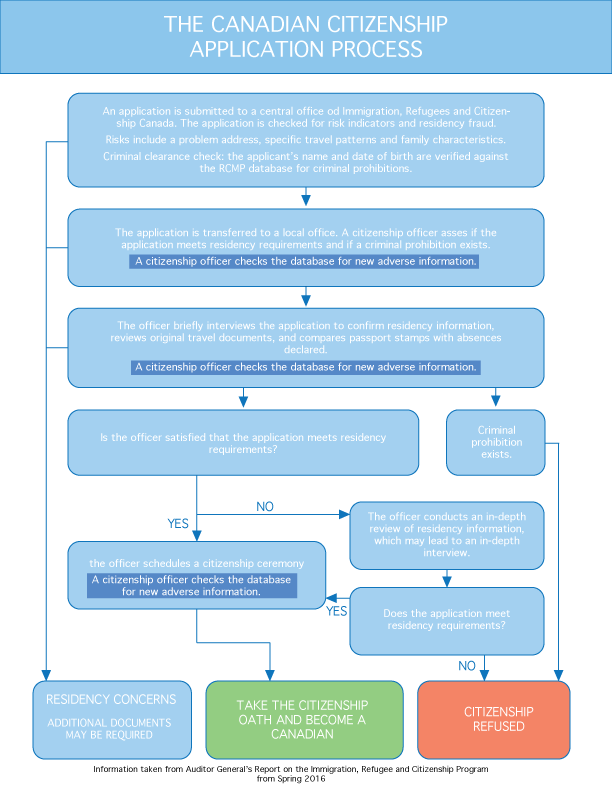Immigration, Refugees, and Citizenship Canada (IRCC) isn’t doing enough to prevent citizenship fraud. This is according to the Auditor General of Canada’s Report that came out this year.
The audit found some people were granted citizenship based on incomplete information or without all of the necessary checks being done. In other words, people were able to cheat the system and gain the benefits of Canadian citizenship without going through the proper hoops and channels.
Further analysis found multiple gaps in the IRCC’s ability to prevent fraud: they had trouble checking for problem addresses, they had trouble identifying altered documents, and there was a general lack of communication with the RCMP in regards to past criminal behavior of applicants, which could affect the status of the application process.

Problematic addresses
Lee Cohen, an immigration and refugee lawyer in Halifax, Nova Scotia, said he personally has seen people who have falsified information, who have been caught and who are being challenged by the citizenship authorities.
“I have seen one or two common threads in those applications – almost all of those people who have come to see me because they’ve been caught with false addresses used an immigration consultant,” Cohen said.
But more than a few still fall through the cracks. The audit, which looked at roughly 10,000 addresses of just over 100,000 adults who had submitted citizenship applications in 2014 and had been granted citizenship by June 2015, found dozens of problematic addresses at first glance.
The audit sites problems with the IRCC’s Global Case Management System (GCMS), a database for Canadian addresses. The report found that GCMS was not updated consistently.
Moreover, there was inconsistent follow-up on addresses identified as problematic in the database, as well as inconsistent identification of applicants who were using the exact same address as other applicants.
Forging documents
Roya Golesokhi, an Iranian immigration consultant working in Toronto, said many applicants are met with increasing demands by the government. That may be a reason why some are pressured to lie.
“If they correctly respond to [questions] on the application form, they would not be able to gain immigration status in Canada,” said Goleshokhi.
She said many people forge employment and financial documents in order to comply with rules that stipulate immigrants need to divulge where they get their money from. They also try to misrepresent the amount of time they spent in Canada in order to meet the requirements for residency.
“The government doesn’t know when you leave,” said Golesokhi. “The only way they can keep track [of people] is with the entrance stamp.”
Miscommunication with the RCMP
To be eligible for citizenship, an applicant cannot have been convicted of certain offences, be in jail, or be on probation.
Yet when that does happen, sometimes the IRCC doesn’t even check. That’s because there’s a lack of communication between the department and the RCMP.
The audit found once the initial criminal clearance check is completed (very early in the citizenship application process), the Citizenship Program has no systematic way of obtaining information on criminal charges from police forces. This means that if an application is arrested after passing the clearance check, IRCC may never find out.
Moreover, some citizenship officers still granted citizenship to applicants even when they knew they had criminal backgrounds.
Cpl. Jennifer Clarke, media-relations officer for the Nova Scotia RCMP, said in an email that “the RCMP will work with IRCC to address the Audit’s recommendation.”
She said the RCMP will explore how and when the RCMP will share information about criminal charges against permanent residents and foreign nations
Clarke said this work is expected to be concluded by December 31, 2016.



